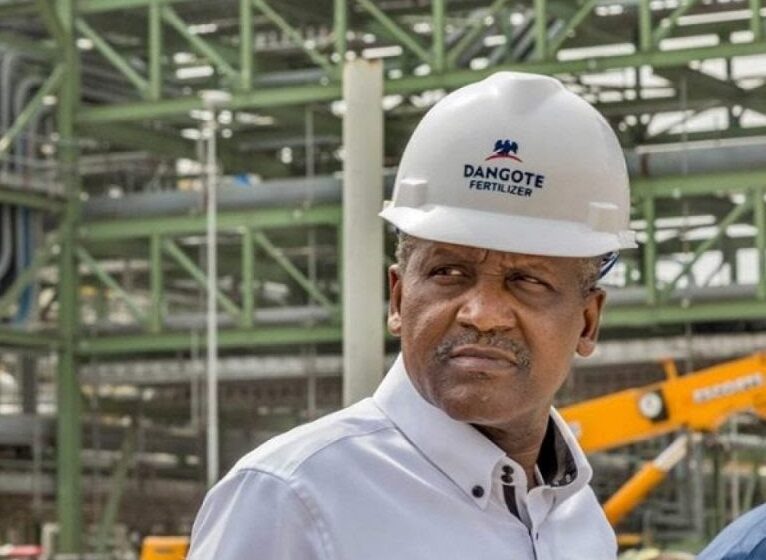Dangote Refinery reduces petrol price: What Nigerian consumers need to know

Dangote Refinery reduces petrol price: What Nigerian consumers need to know Image Source: Punch
On July 1, 2025, Dangote Petroleum Refinery announced a significant reduction in the ex-depot price of Premium Motor Spirit (PMS), commonly known as petrol, from ₦880 per litre to ₦840 per litre.
This 4.5% price cut has sparked widespread interest among Nigerians, promising some relief in the cost of fuel amidst the country’s ongoing economic challenges.
As the largest refinery in Africa, Dangote’s pricing decisions carry substantial weight in Nigeria’s fuel market, influencing prices and availability nationwide.
Recent Dangote Refinery Petrol Price Reductions and Their Impact on Consumers
Dangote Refinery’s decision to reduce petrol prices follows a consistent trend of price adjustments throughout 2025. Earlier in the year, the refinery cut prices multiple times, with pump prices dropping from ₦875 in May to ₦835 in April, and as low as ₦825 in February.
These periodic reductions reflect the refinery’s strategy to stabilize the local fuel market and provide consumers with more affordable fuel options.
For Nigerian consumers, lower petrol prices mean more affordable transportation costs, potentially easing the financial burden on households and businesses that rely heavily on fuel for daily activities.
However, the impact at the pump may vary depending on distribution costs and regional pricing policies. Overall, this price cut is a welcomed development in a country where fuel price fluctuations often lead to economic uncertainties.
Factors Driving Dangote Refinery’s Petrol Price Adjustments
Several key factors influence Dangote Refinery’s pricing strategy. Primarily, global crude oil price trends play a crucial role, as international market fluctuations affect production costs. When crude prices fall, the refinery can adjust prices downward, passing savings to consumers.
Currency exchange rates also significantly impact petrol prices. Since Nigeria imports much of its crude oil and related products, the naira’s strength against the US dollar affects the cost base. A stronger naira lowers import costs, allowing for price cuts.
Additionally, operational efficiencies gained from Dangote Refinery’s modern technology and scale of operations help reduce refining costs compared to older facilities. These savings can translate into competitive pricing, enabling Dangote to adjust prices more frequently and responsively than other market players.
Implications of Dangote Refinery’s Price Cuts on Nigeria’s Fuel Market
Dangote Refinery’s price cuts are reshaping Nigeria’s fuel market dynamics. By reducing petrol prices, the refinery exerts competitive pressure on other marketers and distributors to lower their prices, contributing to an overall reduction in fuel costs across the country.
These changes may also influence government policy on fuel subsidies and deregulation. With Dangote providing competitively priced fuel, there is increasing pressure on policymakers to reconsider subsidy programs, which have long strained national budgets.
Furthermore, lower petrol prices can stimulate economic activities by reducing transportation and production costs for businesses, potentially fostering growth in various sectors. However, sustained price reductions depend on global market conditions and local regulatory frameworks.
Challenges and Outlook for Nigeria’s Fuel Pricing Stability
While Dangote Refinery’s price reductions offer short-term relief, Nigeria’s fuel market faces ongoing challenges. Infrastructure constraints, logistics bottlenecks, and regional price disparities continue to affect consistent pricing nationwide.
Moreover, global geopolitical tensions and oil market volatility can rapidly alter crude prices, impacting domestic petrol costs. Maintaining a balance between affordable fuel prices for consumers and sustainable refinery operations remains a delicate task.
Looking ahead, the continued expansion of Dangote Refinery’s capacity and improvements in supply chain efficiency could contribute to greater fuel price stability. Collaboration between the refinery, government regulators, and marketers will be essential in managing price volatility and ensuring steady supply.
Dangote Refinery’s Price Reduction as a Positive Step for Nigerians
Dangote Refinery’s latest petrol price reduction to ₦840 per litre is a significant development for Nigeria’s fuel consumers, offering some respite amid fluctuating economic conditions. By leveraging its operational advantages and responding to market factors, Dangote is playing a pivotal role in shaping the country’s fuel pricing landscape. While challenges remain, these adjustments point toward a more competitive and potentially more stable fuel market in Nigeria’s near future.

